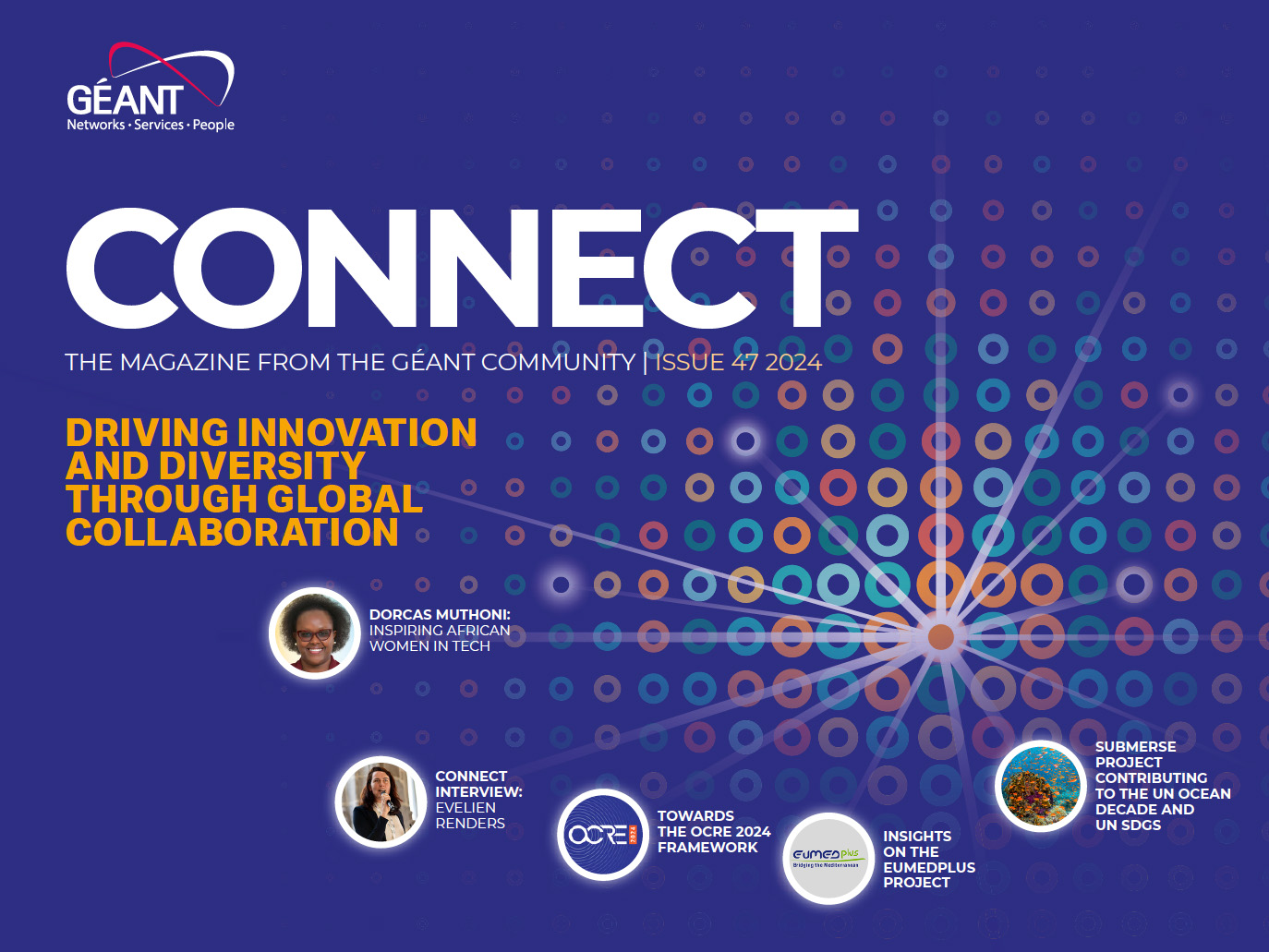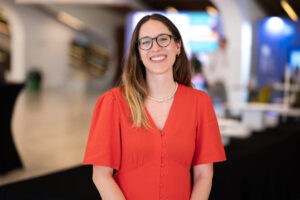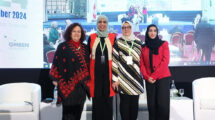


With a four-year timeline and a budget of €13.334m – of which €12m is contributed by the European Union – the EUMEDplus project is coordinated by GÉANT with key partners including ASREN, the American University of Beirut, the Centre National pour la Recherche Scientifique et Technique in Morocco, the Cyprus Research and Academic Network, NORDUnet, and SESAME in Jordan.
ASREN has a long-standing history of supporting NRENs in the North African and wider Arab world, especially given its involvement in previous EUMEDCONNECT and AfricaConnect projects. What are some of the lessons learned that you will bring to EUMEDplus?
Yousef: Indeed, for two decades, ASREN has supported numerous Arab NRENs, with a particular focus on Arab Mediterranean countries, facilitated thanks to the EU support through the EUMEDCONNECT and AfricaConnect projects as well as GÉANT’s continuous efforts and support. Both projects were instrumental for the establishment of ASREN and for the development of NRENs in the region by providing connectivity to the R&E communities in addition to building and enhancing capacities, empowering NRENs to deliver better services. I can summarize the lessons learned in three points:
- Governmental and national support in terms of funding, sustaining and empowering NRENs remains the main challenge as an NREN can be better utilised by the country to achieve its national agenda and digital transformation, for example.
- NRENs have to engage directly with scientists, researchers and students to identify their needs and address them collectively as well as promote their technologies and services.
- NRENs must look ahead and rethink their roles, responsibilities and engagements as this is very important for securing funding and ensuring their sustainability.
EUMEDplus is aligned with the Agenda for the EU’s partnership for the Southern Neighbourhood. What does this mean for the partners and beneficiaries involved?
Tom: One of the key elements in the new Agenda for the Mediterranean is the digital transition, which is naturally at the heart of the EUMEDplus project. This will come in a variety of guises, from improved connectivity for all beneficiaries including Medusa connectivity for North Africa; to the delivery of trusted authentication solutions so that end users can access data and resources seamlessly; to improved access to HPC resources, etc. For the partners and beneficiaries in the Arab region, this will increase their relevancy for their end user institutions. Tied to this is a focus on sustainability development for ASREN and the NRENs in North Africa and the Eastern Mediterranean, with the aim that all will be strategically placed to continue supporting their institutions and end users beyond the end of the project.

Yousef: EUMEDplus project, with its slogan, “Bridging the Mediterranean”, aligns with the EU’s partnership agenda for the Southern Neighbourhood. At ASREN, this means working to bridge the research and education communities with a focus on commonalities like engaging with CERN, EUMETSAT, Copernicus, LifeWatch ERIC etc… This aligns with the EU’s vision by encouraging shared growth and development across borders. It also involves enhancing partnerships between NRENs through NREN twinning and exchange of practices and governance models, contributing to the EU’s goals of regional cooperation and digital transformation. There will be efforts to establish common services delivery mechanisms and engage with EU Open Science initiatives, benefitting all parties involved.
In the project, there is a big focus on gender equality and women empowerment initiatives. Could you give us an example of what is planned?
Yousef: Women’s empowerment and gender equality have always been key priorities for ASREN and our community, and as part of the EUMEDplus project, we are launching initiatives to support women and amplify their voices. One such initiative is the Women in STEM track to be planned along our annual conference, e-AGE, each year of the project. It will be a platform for interactive discussions, workshops, and knowledge-sharing sessions focusing on providing valuable insights and skills.
This year at e-AGE24 we will conduct a panel discussion, featuring women from the Arab region who will share their personal and professional journeys highlighting their success stories and how they navigate challenges to inspire other women in the field. The details shall be announced soon.
Fast forward to 2028, how do you see the role of the NRENs and institutions involved in the project evolve?
Tom: EUMEDplus will benefit from the expertise of project partners in the Arab region (AUB in Lebanon, CNSRT in Morocco, SESAME in Jordan) and Europe (CYNET and NORDUnet) in delivering the project outcomes. In addition, the beneficiary NRENs will be involved in delivering new or improved connectivity for institutions in their countries. This level of involvement gives ownership in the project to all involved for the benefit of all. I would like to think that this will help strengthen the sense of community within the project participants and beneficiaries and place the ASREN membership in the driving seat for the region beyond the end of the project.
Yousef: The current engagements of NRENs entails that our NRENs are evolving already. I am quite confident that they learned from the previous EUMEDCONNECT and AfricaConnect projects, and of course from COVID-19, that they have to take responsibility and to be proactive. Undoubtedly they face numerous challenges, many of which I trust that EUMEDplus project partners will address, especially the activities related to developing the governance of NRENs and engaging with policy- and decision-makers to further develop the national R&E infrastructures to utilise the Medusa capacity provided to each country in North Africa.
What would you say to researchers and students in the Arab world directly benefitting from the project’s impact? What can they expect?
Yousef: Through ASREN and the Arab NRENs, EUMEDplus will be building the infrastructure, services and Open Science principles that will enable you to collaborate with colleagues nationally and internationally and carry out your research more effectively. Your contribution to driving solutions for your region’s challenges is vital, and EUMEDplus together with your local NREN and ASREN are there to enable you in this.
My message to the researchers and students is different. Over the last two decades, ASREN and NRENs have worked to provide the connectivity you need to collaborate. Later, we realised the importance to enhance our services to meet your demands. Today, we are more engaged with you than ever, with the aim to better understand your needs so we can align our services and engagement accordingly. My message to you: help us define our future!

Read or download the full magazine here







